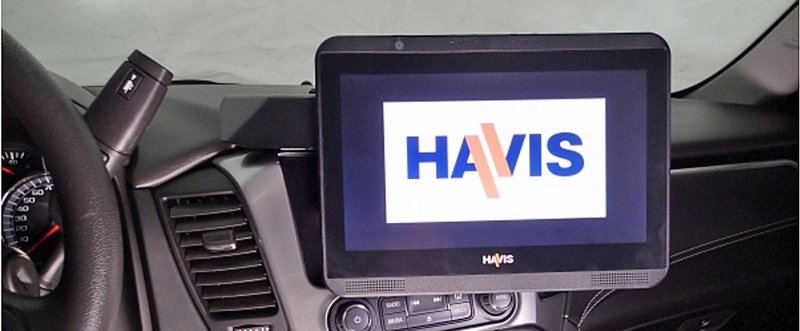This Power Supply Should be Able to:
- Keep a mobile office running, even when a vehicle is shut off.
- Help to reduce costs associated with idling.
- Maintain the constant flow of information needed to maintain efficiency.
- Operate in rugged environments and prevent vehicle batteries, as well as critical mobile office equipment, from dying.
Choose the Right Vendor
Your ideal vendor has experience designing in-vehicle mobile office solutions, understands all the components, and can provide guidance in identifying the right total mobility solution and power needs.
With a range of power supply providers on the market, it is important to select vendors whose service and products meet the fleet’s standards for reliability and durability.
Another consideration for choosing a vendor is its warranty and customer support policies. Power supply installations can be complex, requiring additional troubleshooting after purchase and installation, whether through warranty, return or repair programs.
Strategic Planning for Power
Planning for power is part of a good business strategy. Fleets see fewer interruptions and less troubleshooting when power is planned based on computing devices, vehicle types and other application specifications. At the same time, planning for docking, mounting and installing equipment will ensure that the solution operates properly in rugged conditions.
In-vehicle offices can be found inside forklifts, carts, pallet jacks, cars, trucks and vans. Each application has a distinct set of considerations and requirements for selecting a power supply. Power management by design will help ensure a stable and reliable power source with the capacity to manage power through the entire cycle.
When Josh Mueller, channel sales manager at Lind Electronics, works with customers to identify the appropriate power fit, he begins by asking a series of questions to determine the customers’ needs and the solution specifications.
“Once the customer can answer questions about the device and installation, the rest of the solution falls into place,” Mueller said.
Auditing Your Power Needs
The first step to identifying a power supply solution is to consider each area of the mobile office that power affects:
Computing Devices
Vehicle
Supporting Equipment
Docking and Mounting Solutions
The End User
Application
Among the application issues to consider is whether the device will need power when the vehicle is not operating, as well as exposure to harsh conditions, such as rain and dust. Understanding the application requirements will help to identify the best power supply solution for the fleet.
For more information about installing a productive mobile office solution, download the new whitepaper, Havis Critical Power Guide for Fleet Mobility.
Inside you’ll find a more in-depth look at power supply varieties and installation so that you can maintain the reliability of your mobile computing system.


